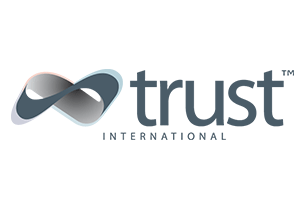Over the past several years Market Metrix has tracked the rising popularity of user generated reviews. These results track the substantial and growing number of hotel guests (business, leisure and group) that are checking consumer reviews before booking and then sharing their experiences online. This increase in user generated content means that traditional, controlled messages through TV, magazine, and direct mail now have to compete with the trusted words of fellow consumers. Research indicates that individuals are more inclined to believe other guests than more formal forms of promotion methods.
But are hotels acknowledging this game-changing shift in communication? Are they attempting to regain control by participating in the dialogue, responding to negative reviews and taking action to drive improvement in the guest experience? Are they finding new insight and opportunity from their own and competitor reviews?
A recent survey conducted by Market Metrix and TripAdvisor focused on these questions. How are hotels perceiving and responding to the growing importance of user reviews? Are they embracing or ignoring this significant new trend?
Our sample included hotels registered on TripAdvisor as well as a mix of hotels from all industry segments. The consensus among these hotel managers is that review sites, such as TripAdvisor, are important to hotels. An impressive 90% of hotel managers think reviews are very important and nearly as many (81%) visit review sites at least weekly. Although some managers expressed concern about the authenticity of reviews, many described their dependence on these sites (e.g., “As a limited service hotel we get a lot of travelers who rely on those surveys.”)
Among all review sites, hotel managers believe that TripAdvisor has the biggest influence on their guests. After Trip Advisor, Expedia, Hotels.com and Travelocity (in that order) were also mentioned by hoteliers as important to their guests and how they make booking decisions.
Most hotel managers (70%) are familiar with TripAdvisor’s POPULARITY INDEX, which ranks the top hotels in a city. This helpful metric is used by many consumers to quickly narrow their hotel search. 90% of hotel managers believe that the POPULARITY INDEX is important to their hotel and follow their ranking regularly. Nearly half of hotels (46%) have seen their POPULARITY INDEX increase, slightly less (42%) report no change and 12% have seen their rank decline. Most hotels believe a change in their rank was likely due to a change in their service, rather than due to changes in their product, price, or other variables.
Hoteliers clearly recognize the impact that user reviews have on their business. But in startling contrast, only 15% of hotels have policies or guidelines for how to manage user-generated reviews. A whopping 85% of hotels have NO guidelines for monitoring, responding or acting on guest reviews.
The pace of this change has certainly caught hotels off guard. Most hotels don’t have a person responsible for handling social media. Many hotels consider this the purview of marketing, public relations, or sales. Others believe the general manager or even the concierge should be responsible for developing and executing social media strategies. Some hotels have created interdepartmental efforts, with tasks distributed across managers and departments. But whatever the approach, without a point person to take control, effectively dealing with social media becomes nearly impossible.
In developing a social media strategy, this point person should:
- Consistently monitor the buzz on your brand. Your brand isn’t what you say it is, it’s what your guests and the world at large says it is.
- Track, respond to and learn from guest reviews. Time is compressed with the internet, so respond to guest feedback instantly.
- Understand competitor performance gaps. Service initiatives often differentiate hotels and may provide a higher ROI than product investments.
- Use guest feedback as an input in your investment decisions – what investments in service and product will reduce problems and increase loyalty?
Consider segmenting guests by their tendency to post or participate in social media. Business travelers, for example are more likely to be vocal critics than older leisure travelers.
In terms of tools that could help with the above best practices, hotels say they want more support tools for searching, sorting and printing reviews as well as tools to help improve their review scores, and the ability to more easily compare themselves to a relevant set of competitors.
The hospitality industry is still in the beginning stages of figuring out how to master the exciting potential of this emerging medium. But it is obvious that consumers’ new found control in the communication about hotels has a direct impact on business. So, whatever the approach to dealing with consumer reviews, if you are not part of the dialogue and embrace the new information, your hotel becomes vulnerable and irrelevant.




